
Is having a disorganized home such a big deal? Why not let people live how they want to live?
Having a clean, comfortable home affects people in different ways:

Keeping a clean, organized home is well worth all the physical, mental, emotional, and social benefits that come with it.
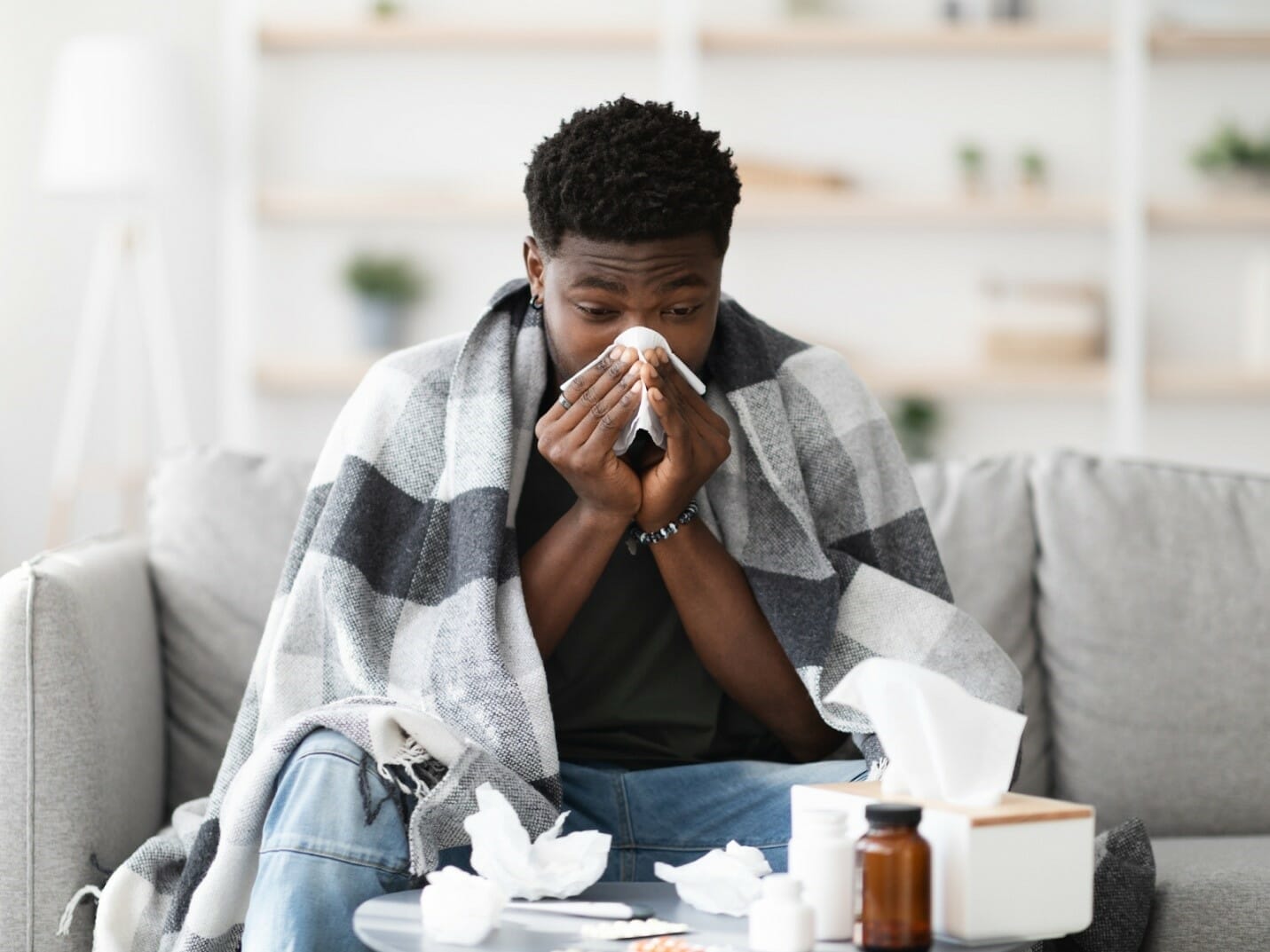
From sleep quality to infection control, cleanliness affects how well your body functions from day to day.
Here are a few ways keeping an orderly environment can help you physically:
Keeping a clean home reduces the risk of illness-causing pathogens being passed to residents of the home.
Food preparation areas should be sanitary, especially after handling raw meat.
Bathroom areas should be cleaned regularly, and animal waste should be taken care of to prevent disease.
People with cluttered homes are more likely to experience insomnia. It’s hard to know if it stems from increased stress levels, difficulty getting comfortable in a cluttered space, or from another cause, but cleaning up clutter should help you get a better
night’s sleep.
Allergies and asthma attacks can be triggered by dust, pet hair and dander, and mold. Keeping homes free of these triggers can improve allergy and asthma symptoms.

The state of your home can have profound effects on your mental state. A cluttered, disorganized space can stress and overwhelm us. Severely cluttered homes can also cause feelings of shame and anxiety. Here are a few ways keeping your home in order can help you function well mentally:
A clean, uncluttered space helps our minds stay on task without distraction. When we see more items in our line of sight, it can actually slow down our brain’s processing speed and make it more difficult to focus.
When we constantly look around us and see work that needs to be done, it’s difficult to feel calm. How can we relax when we’re surrounded by chaos? Maintaining a clean, organized space will create tranquility and peace-of-mind.
Setting your home in order can be empowering! When you are able to make your space look and feel the way you want it to be, you feel a sense of accomplishment.
When your home is constantly in good condition, you can depend on it as a place to relax and feel at peace. Regardless of what happens outside your home, you have a refuge where you can retreat from the world.
Creativity needs margin and blank space to grow. When your space is not distracting from your thought process, your brain can focus on new ideas.

Just as tasks requiring deep thought can be difficult when our homes are chaotic, our emotions can also be hard to settle when our environment is in upheaval. Here are some emotional benefits to improving the cleanliness of your home:
When you’re in a clean, comfortable environment, you feel better emotionally. Many studies show a relationship between messy homes and unhappiness.
Not only does being in a clean, restful environment contribute to being better able to focus and be mindful, the act of cleaning itself actually offers an opportunity to practice mindfulness. Being mindful of the task at hand can decrease feelings of anxiety and increase feelings of inspiration.
Emotional regulation is the ability to respond to your emotions mindfully. This skill can help you reframe negative emotions and cope with stress. When your home is less cluttered, you are better able to attend to your emotions and find peace.

Your home doesn’t only affect you—it also has an effect on the people around you. When your home is messy and disorganized, it can actually hinder your relationships. Here are some ways cleaning and organizing can benefit you socially:
Cleaning up can create a welcoming space for you to spend time with those you care about. When your home is messy and disorganized, it can be difficult, or even embarrassing, to host others.
You may feel embarrassed about the state of your home, or your friends may not be comfortable there due to cleanliness issues, a lack of seating due to spaces being taken up by clutter, and so on.
When your home is clean and uncluttered, there is space for family to come and stay. Even if you need to set up cots or sleeping bags to accommodate extra guests, they can still be comfortable with you. With a clean floor and stored belongings, this can become a reality.
In severe cases, disorganization and lack of cleanliness can lead to structural issues with your home. Appliances may fall into disrepair and become hazardous, or the home’s structure can even be compromised by the weight of your belongings.
When your things are in order, there is no danger of needing to relocate. However, when your things are in order, there is no danger of being forced to relocate. That stress is non-existent. At a certain point, a health inspector could become involved.

Everyone can improve the state of their homes—we all struggle to keep things clean and hang on to only the possessions we really need.
However, when we take the necessary steps to tidy up and declutter, we can see benefits in many different areas of our lives: physically, mentally, emotionally, and socially.

There are varied reasons people hang on to things they don’t need based on their circumstances or deeper-lying struggles. A cluttered home—even one that would qualify as a Level 5 situation—doesn’t stem from laziness or lack of willpower.
More often than not, a cluttered home is the result of a difficult-to-control situation, which is part of normal life.
What’s the source of your clutter? Following, are a few factors that may be contributing to your at-home clutter:
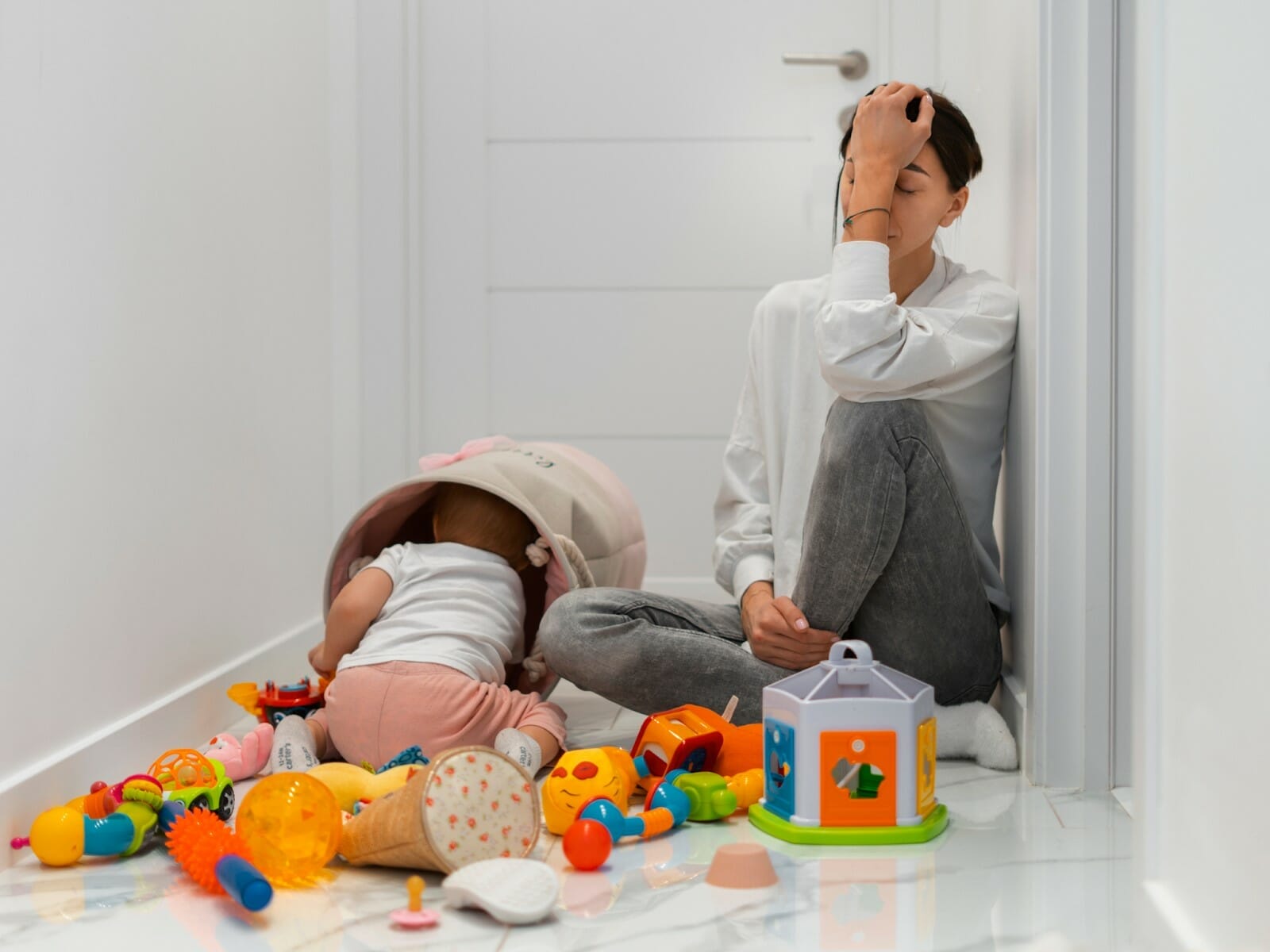
Having children can bring an abundance of joy, but also plenty of clutter.
Baby gear that is only used for a short period of time, rapidly changing clothes sizes, and piles of toys accumulate quickly.
It doesn’t end with the baby phase, though. As all guardians know, older kids and teens bring their own messes into the home.
Food-related messes combined with sleep deprivation can make it difficult to keep up with housework.
With children leaving clutter everywhere and food-related messes needing immediate care, it can be difficult to keep up with housework. Especially when you consider the sleep deprivation that also comes with kids.
Between art and science projects on the counter and smelly gym bags and laundry
left around the house, things can get (or stay!) messy.
It doesn’t help that children aren’t well-known for cleaning up after themselves!
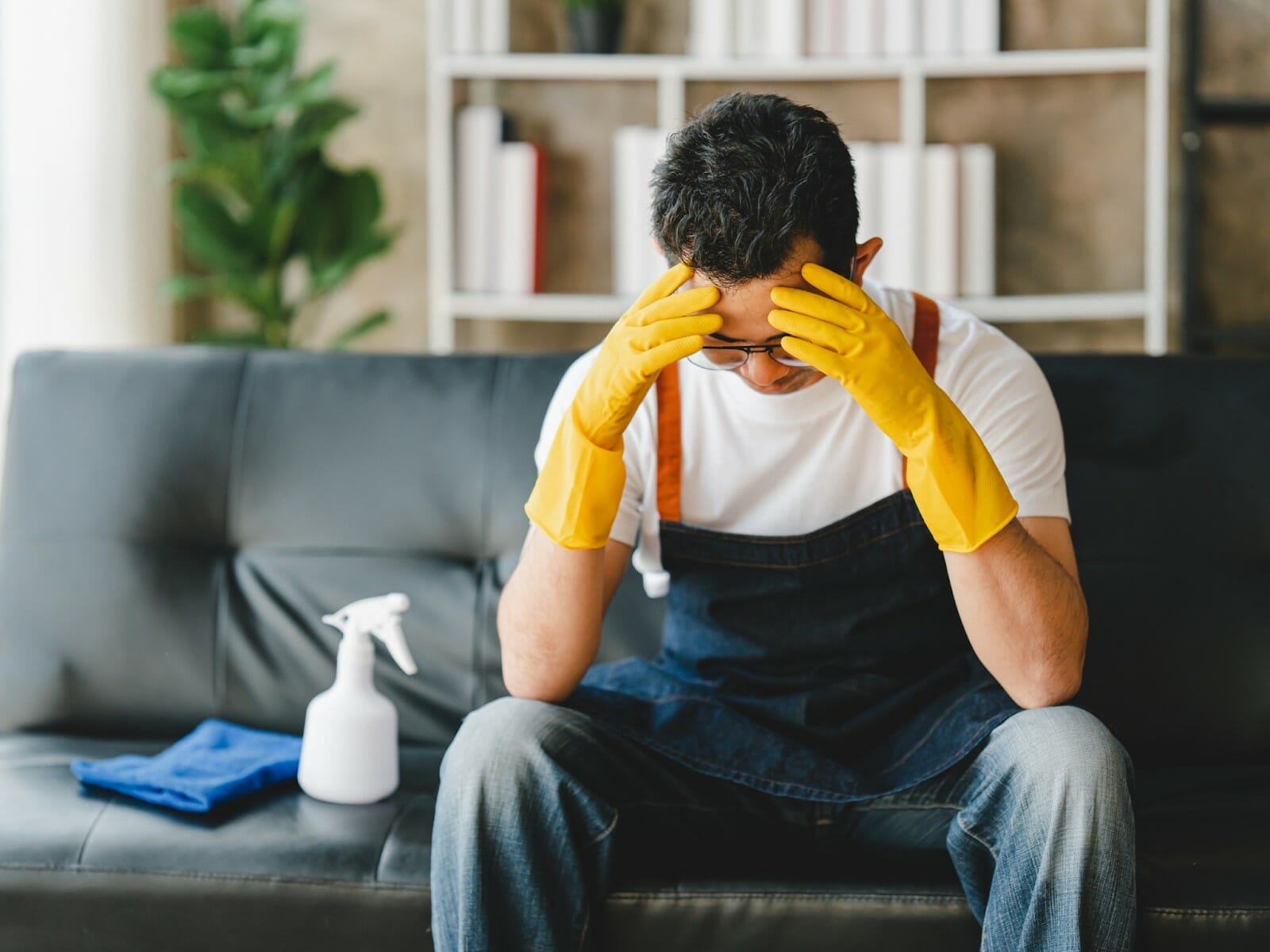
As adults age, they may struggle to keep up with their housework.
Think of all the reaching and bending over. Consider all the hard scrubbing. With health issues, simple cleaning tasks take much longer to accomplish, if it can still be done.
Decreased mobility and increased health issues can make cleaning overwhelming or even impossible.
In addition, it can be difficult to let go of possessions accumulated over a lifetime.
Anxiety can make it difficult to throw away possessions.
People with anxiety may hold on to items in excess in case of a feared emergency or indecision about what to do with items.
Finding the motivation to clean and declutter is often a struggle for someone suffering from depression.
The stress of an out-of-control home situation (whether it’s actually out of control
or simply perceived to be) can create a negative feedback loop.
For example, maybe you’re struggling with depression and lack the motivation to do the dishes. This means the dishes quickly pile up and within a week or two every surface in your kitchen could be covered in dirty dishes.
Now, you’re facing an overwhelming mess that can make you feel even worse—piling on exhaustion, guilt, and shame—and making you even less likely to find the motivation to clean up.
This cycle can leave those struggling with depression feeling more overwhelmed and less able to approach their home situation.
Individuals with ADHD often have intense, passionate interests and may accumulate items related to that interest. In addition, it can be difficult for a person with ADHD to create and stay focused on a plan for a big cleaning project. Anytime there are multiple steps involved, it’s easy for people with ADHD to get distracted.
Obsessive-compulsive disorder is characterized by obsessive, intrusive thoughts and compulsive behaviors. People with OCD sometimes deal with anxieties and emergencies by compulsively buying items. They may have obsessions about running out of essential items or a buying ritual that is difficult to break out of.

Trauma can be a trigger for accumulating clutter. If someone grew up without:
They may feel driven to hold onto things rather than throw them away when they are no longer needed. Research shows that childhood emotional abuse and physical neglect in particular predict higher levels of hoarding symptoms.
People who have experienced loss may also accumulate possessions to soothe the ache of missing their loved one. Buying new things triggers a brief dopamine high, bringing temporary emotional relief.

If you grew up in a home where clutter was common, you are more likely to show these behaviors yourself. You may have a genetic disposition toward it through related diagnoses like anxiety or depression. You may also be more used to an environment where clutter, mess, and even the higher levels of hoarding are the norm.
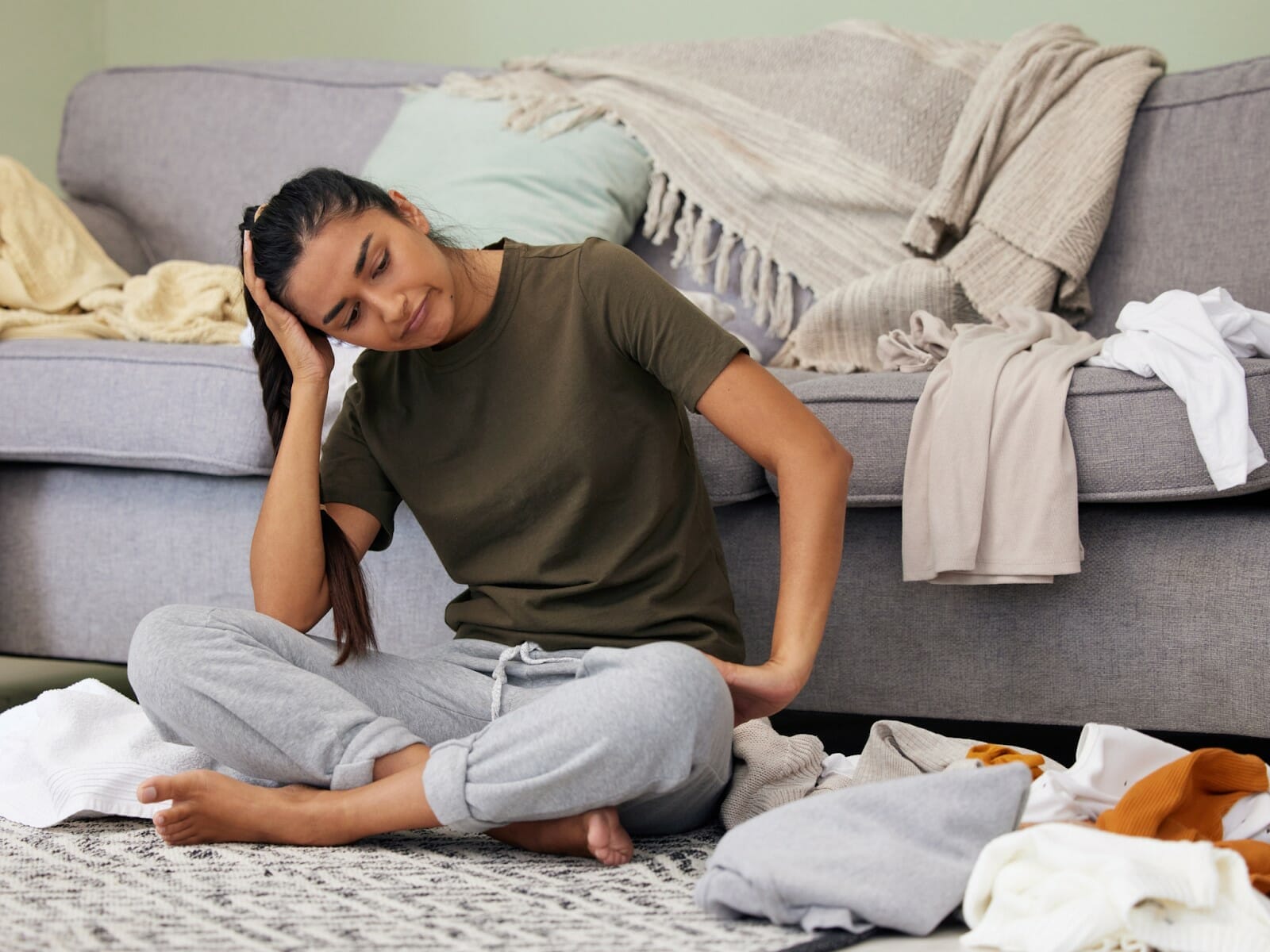
No matter the reason clutter starts, it’s normal to feel overwhelmed and stressed by the situation. Home maintenance is a big task under any conditions. Certain factors can make the situation feel impossible such as:
Stress can lead to disorganized homes, and disorganized homes can increase stress. Natalie Christine Dattilo, PhD, clinical health psychologist and instructor of psychiatry at Harvard Medical School, calls it a chicken-or-egg dilemma.

“Recent studies have shown that clutter in our homes is associated with higher cortisol levels [our stress hormone], but it’s still unclear which comes first,” says Dattilo.
“Is it that when we are under stress, our ability to maintain a well-organized home becomes impaired? Or when our home is in disarray, does that make us feel more stressed, overwhelmed, and anxious?”
Regardless of the root of the issue, there is a way out. Resources are available to help you deal with your home situation. Bio-One can help! Our services can help ease your stress. For more information on how we can help you with your clutter call (623) 888-4276.
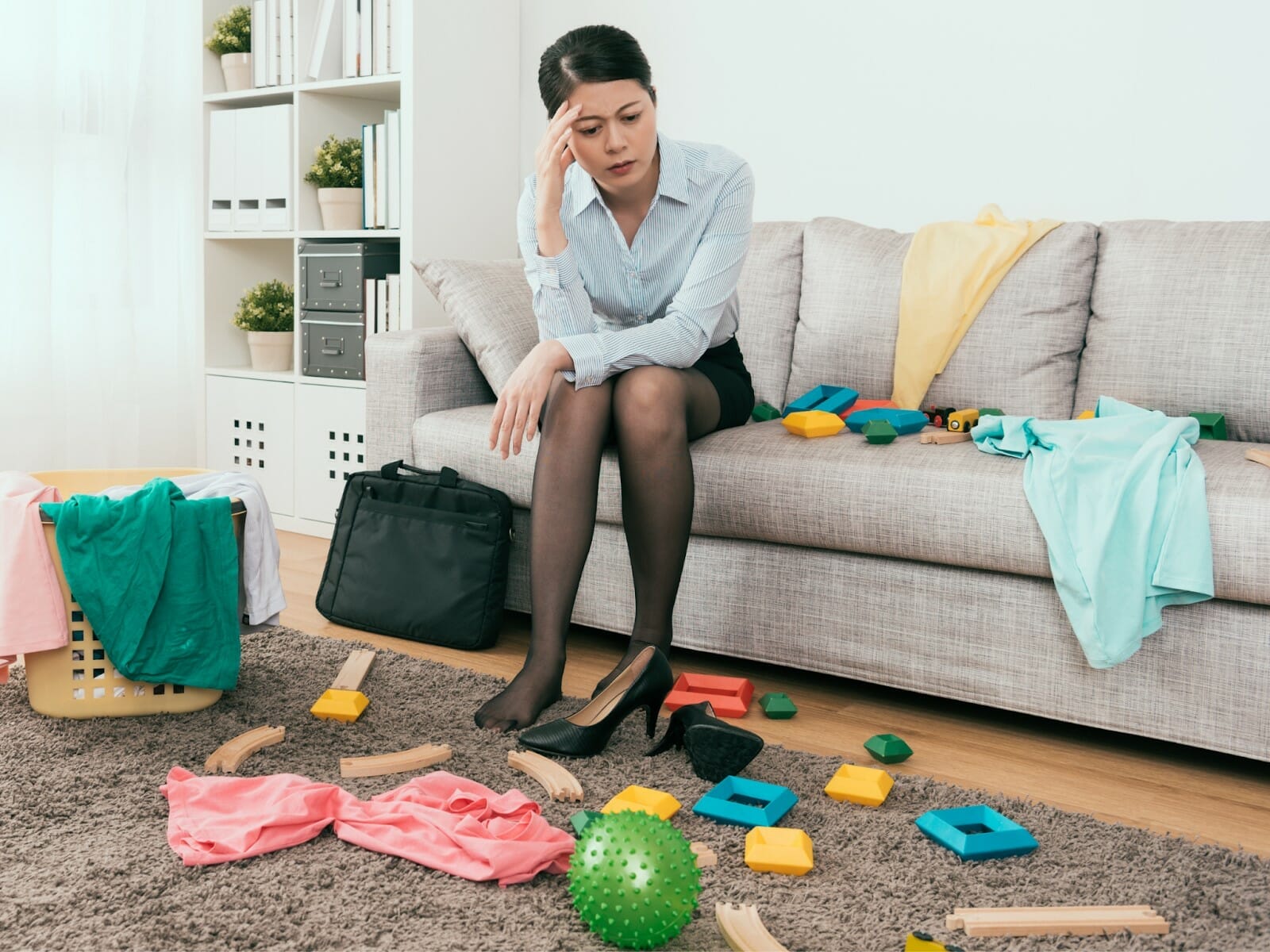
What is stopping you from getting the clutter in your home under control? It might be that you’re overwhelmed—and that’s okay. Maintaining and cleaning a home is a huge task. When you’re trying to do it by yourself amid many other responsibilities, you might not be able to do it all.
Fortunately, you don’t have to do it yourself. There are many support systems out there to help you manage your home. If you’re feeling overwhelmed, you can reach out for help.

Family members are often the first ones to step in when you need extra hands. If you live with a partner, children, or other family members, they should already be taking on a share of the housework as appropriate to their age and health status.
Friends and other family members are also often willing to lend a hand to help with a limited-scope cleaning project, such as:
If you find yourself facing any of these, you could ask a loved one for help.
Sometimes, you might need more help with your house than your friends and/or family are able to give—and it’s important to realize that’s completely okay! There are many different types of people who can help you get your house under control when it gets overwhelming.

If your schedule makes it difficult to stay on top of cleaning tasks, hiring a house cleaner can take some of the burden off your shoulders. You can hire them to come on a set schedule, like weekly or monthly, or schedule a cleaning every now and then when you need extra help—or even just bring them in for a deep clean spring cleaning to get your home back on track.
An excellent way to start when you’re looking to hire someone to come help is by asking around to friends and neighbors. Who do they use and recommend? Another good source is neighborhood mailers like Valpak that include coupons for local services.
However, no matter who you hire, it’s important to understand that house cleaners typically do not pick-up, declutter, or organize homes. Rather they clean:
Whether you hire someone to clean the entire house or ask them to focus on key areas, like the bathrooms or kitchen, you may need to pick up clutter before they come over. This makes it easy for them to access the surfaces that need to be cleaned.
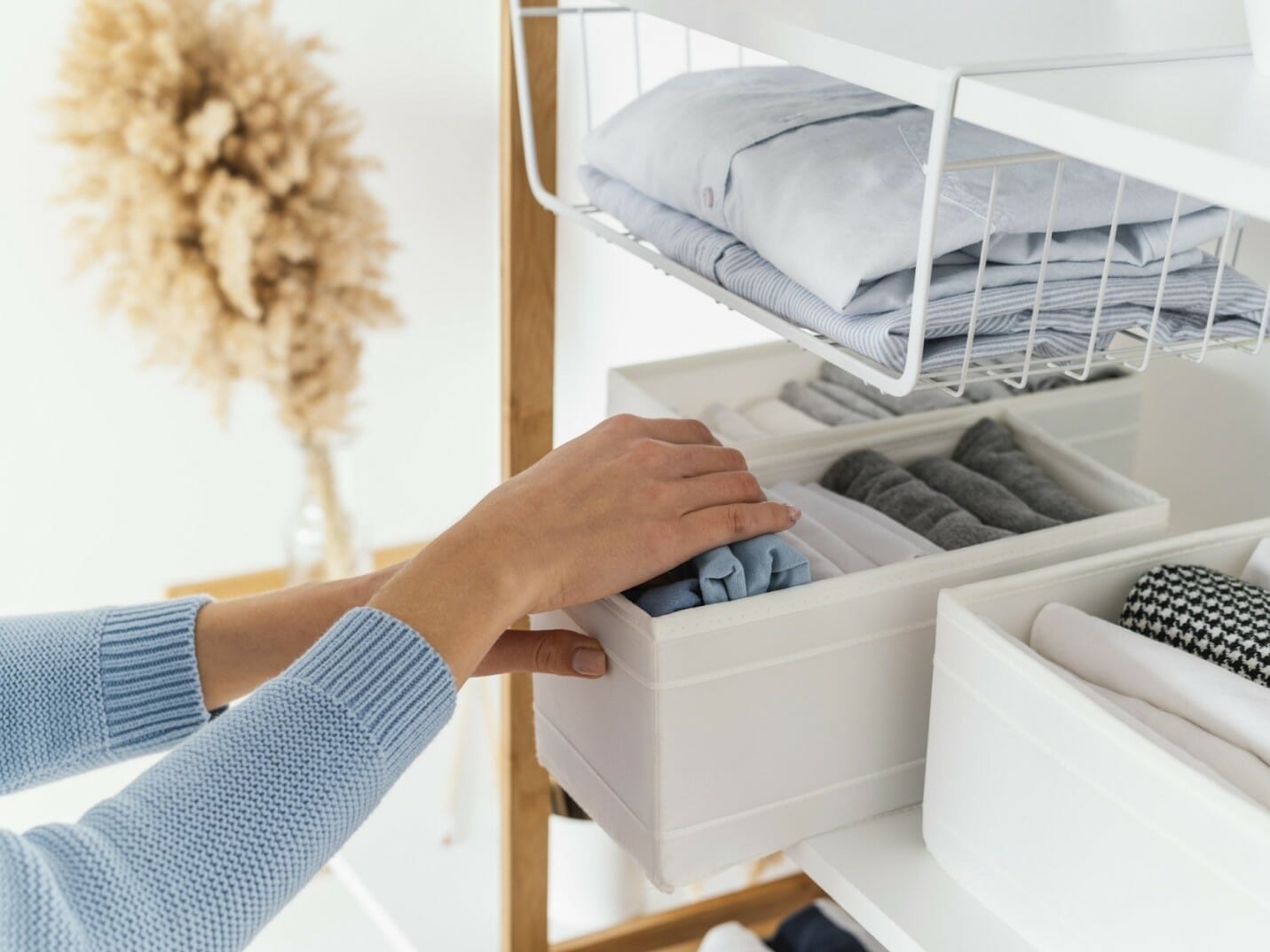
If the idea of picking up all the clutter for a house cleaner to come over is overwhelming, an organizer may be the helper you need.
Professional organizers consult with you about how best to manage and store your belongings. They may physically come into your home or meet with you virtually to help you come up with a clutter strategy.
Organizers will help you troubleshoot the reasons for your clutter, find strategies to deal with it, and give you accountability to take care of it.
Depending on the organizer and whether they meet with you in person or virtually, they may help you move items, but they aren’t cleaners. Their primary goal is to help you find your own sustainable strategy for a decluttered space.
Similar to hiring a house cleaner, you should start your hunt for a professional organizer by asking around to friends and neighbors. Community mailers and social media groups are also good places to check, and finally, a good, old-fashioned Google search can help you find reputable professionals in your area.
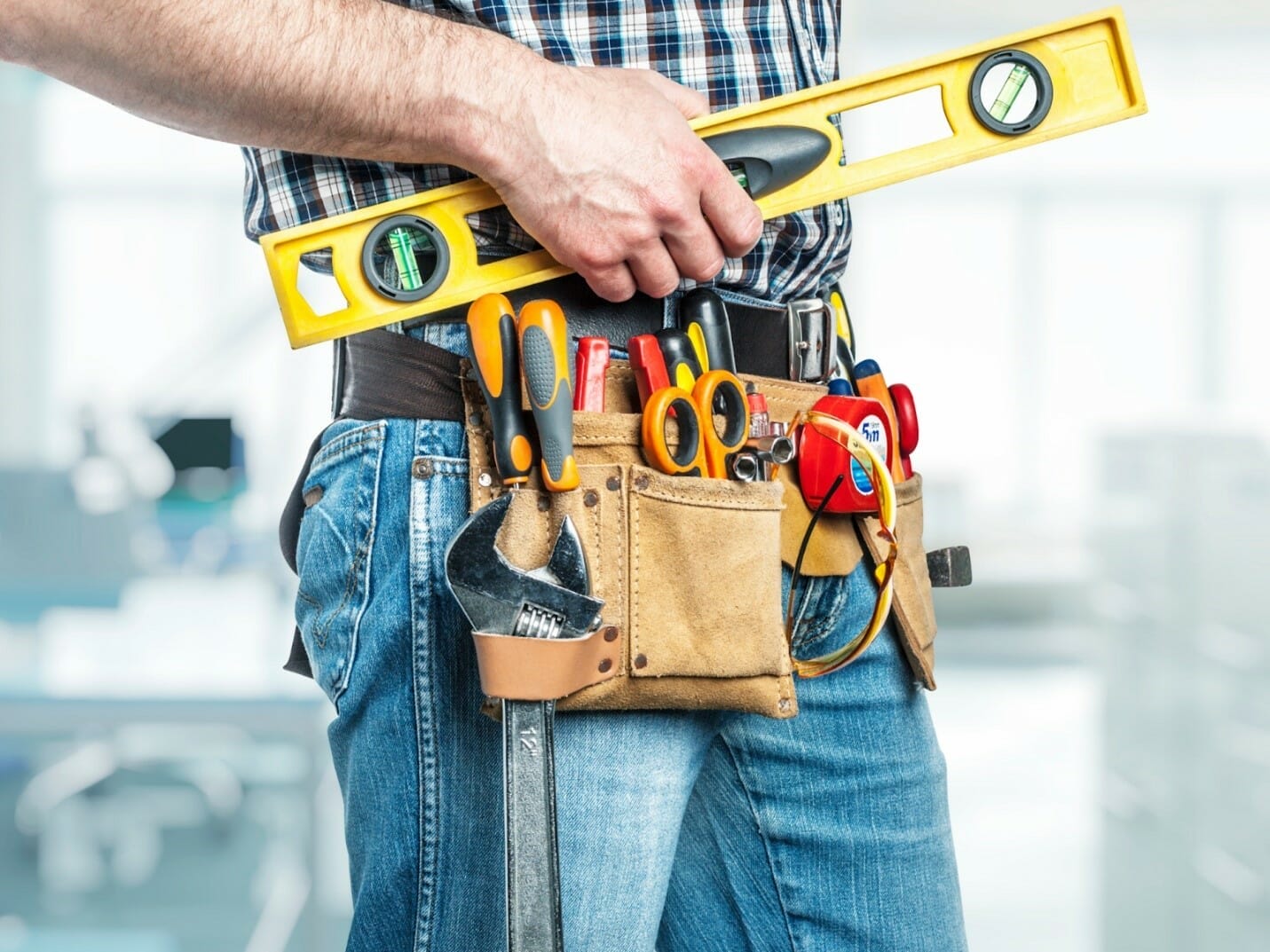
Sometimes, broken appliances or structures in the home can cause a barrier to cleaning. It can feel like you can’t get things done because there is an issue you can’t fix on your own.
A handyman can take care of minor repairs in your home.
They can also install shelves—a great asset when you’re trying to be more organized!
Check out websites like Angi (formerly Angie’s List) or Thumbtack for reviews of handyman services ranging across all sorts of specialties. Community social media groups, mailers, and friends and neighbors are all also good places to turn for recommendations.
Often, our cleaning struggles stem from a deeper source.
Many of us are not just messy—we may be unmotivated due to depression or anxiety, struggling to focus on cleaning due to ADHD, or dealing with any number of other hurdles. In these cases, hiring a cleaning service is putting a bandaid over the problem.

To see lasting change, it can be helpful to enlist a mental health specialist to help you find your equilibrium. There are a wide variety of resources available. For a complete list, check out this article from the National Institute of Mental Health.
Even if you don’t have a formal mental health diagnosis, talking with someone about ways to cope with the stresses of daily life can make a difference in your motivation and ability to troubleshoot problems.
You can find mental health support from a variety of practitioners, including:
Sometimes, your home needs a coordinated team to tackle all the different areas in need of cleanup and repair.
If your home has so much clutter that:
You’ll want to enlist help that can safely and efficiently take on the challenge.
When you work with a specialized cleaning team like Bio-One, you’ll start out by meeting one of our team members to discuss your goals and situation.

They’ll investigate any safety hazards and ask you questions about what you want them to preserve in the home, what should be disinfected, and other goals unique to you.
When the team begins work in your home, they will do all in their power to keep their work discreet, including changing into protective gear in your backyard or garage if desired and using unmarked vehicles.
You will be looped in throughout the process of Bio-One’s decluttering and deep-cleaning work.
Imagine the relief you’ll feel knowing your home is in good hands.
If Bio-One’s cleanup services sound like what your home needs, give us a call anytime at (623) 888-4276. Our lines are open 24 hours a day, 7 days a week, 365 days a year. You can also fill out a service request on our website.
There’s no shame in needing help with your home. At Bio-One we’re here to guide and support you through the process.

You have probably put serious consideration into your pets’ habitats.
Whether you have a furry animal like a dog or cat or something scaly like a lizard or snake, you’ve likely researched their needs. No matter your furbaby of choice, you’re likely making an effort to provide the best possible home for them.
However, you might not be aware of how clutter affects pets. It's important to make sure your home is a safe environment.
Here are 5 reasons why controlling clutter is critical to giving your pets the best home possible.

When high levels of clutter are present, it can be tricky for your pets to navigate your space. They might not be able to run and move freely if there are many items on the floor. Many pets also experience anxiety, which can be exacerbated by cluttered surroundings.
Even if pets are not injured or harmed by the clutter, they may still be limited in their ability to thrive. High levels of clutter may restrict their activity to the point where they’re not getting the exercise they need to be as healthy and happy as possible.

When homes have excessive clutter, there is a higher risk of injury to your pets. They may:
It’s important to put all dangerous objects out of reach and have clear, navigable pathways for your pets’ safety.

A clean space makes it easier to make sure your pets don’t escape. It would be heartbreaking for a pet to get lost—or even to cause minutes or hours of worry if they go wandering before returning home.
Doorways and windows should be secure so pets don’t get out (unless it’s into an enclosed space, like a fenced-in backyard).
Make sure you have a general idea of where your pets are and check on them often.
Just like kids, animals can get into dangerous chemicals. Some items that aren’t dangerous for humans can be harmful to other animals, like chocolate for dogs.
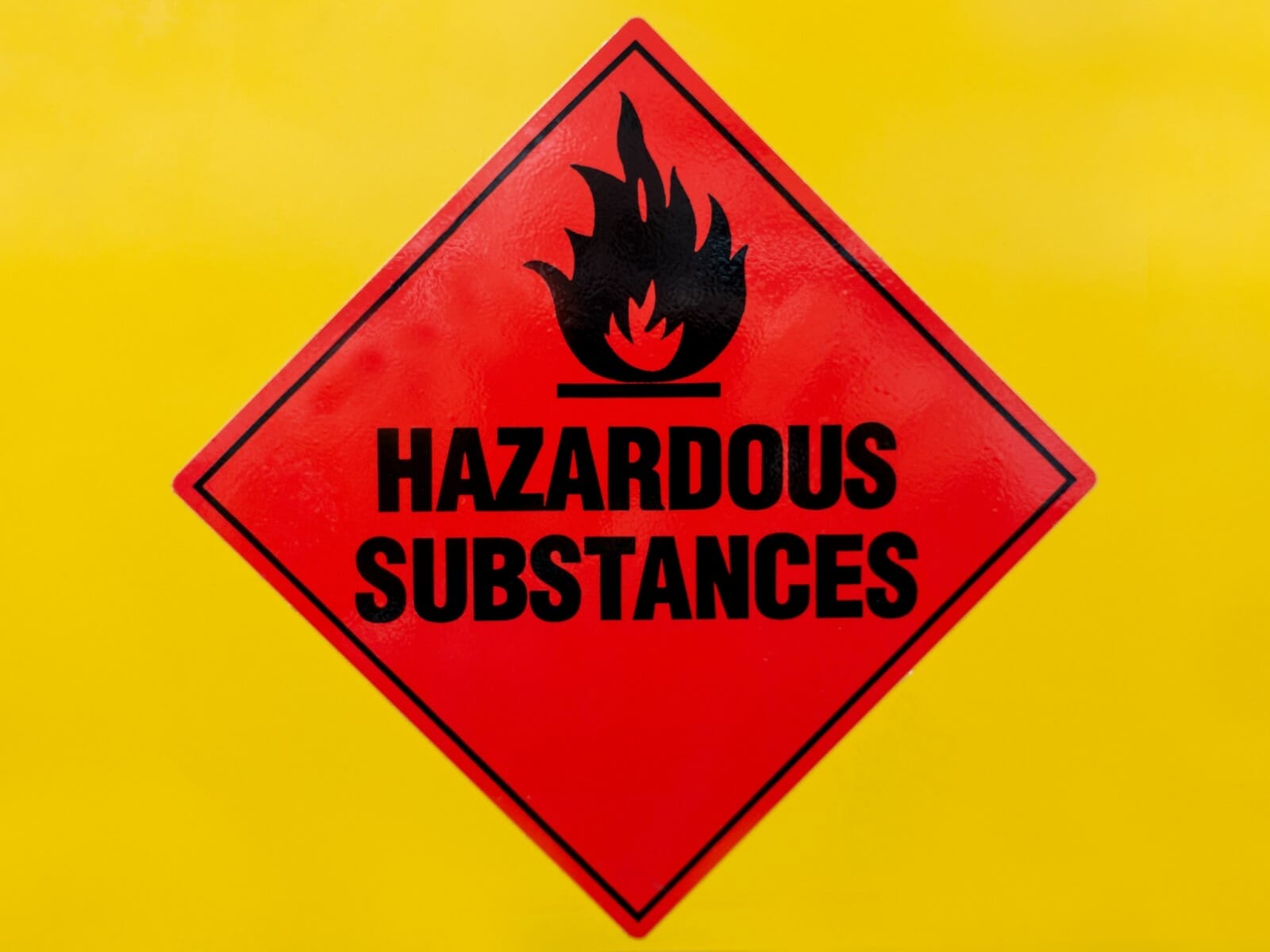
It’s important to keep anything that can harm your pets out of reach or locked away.
Chemicals like antifreeze, pesticides, fertilizers, paints, and even dryer sheets can be hazardous. They may look like food to your pets and should be kept out of reach.
Medications should also be carefully stored away from your pets. If your home is cluttered it can be harder to notice these items are not safely tucked away.
Certain house plants can also be dangerous for pets. Some of the most common plants that should be kept out of reach of cats, dogs, and other animals include:
Certain foods that you enjoy may also be dangerous. Putting food away and cleaning up food waste will help your pets stay healthy. Make sure your dogs, cats, and other animals stay away from:
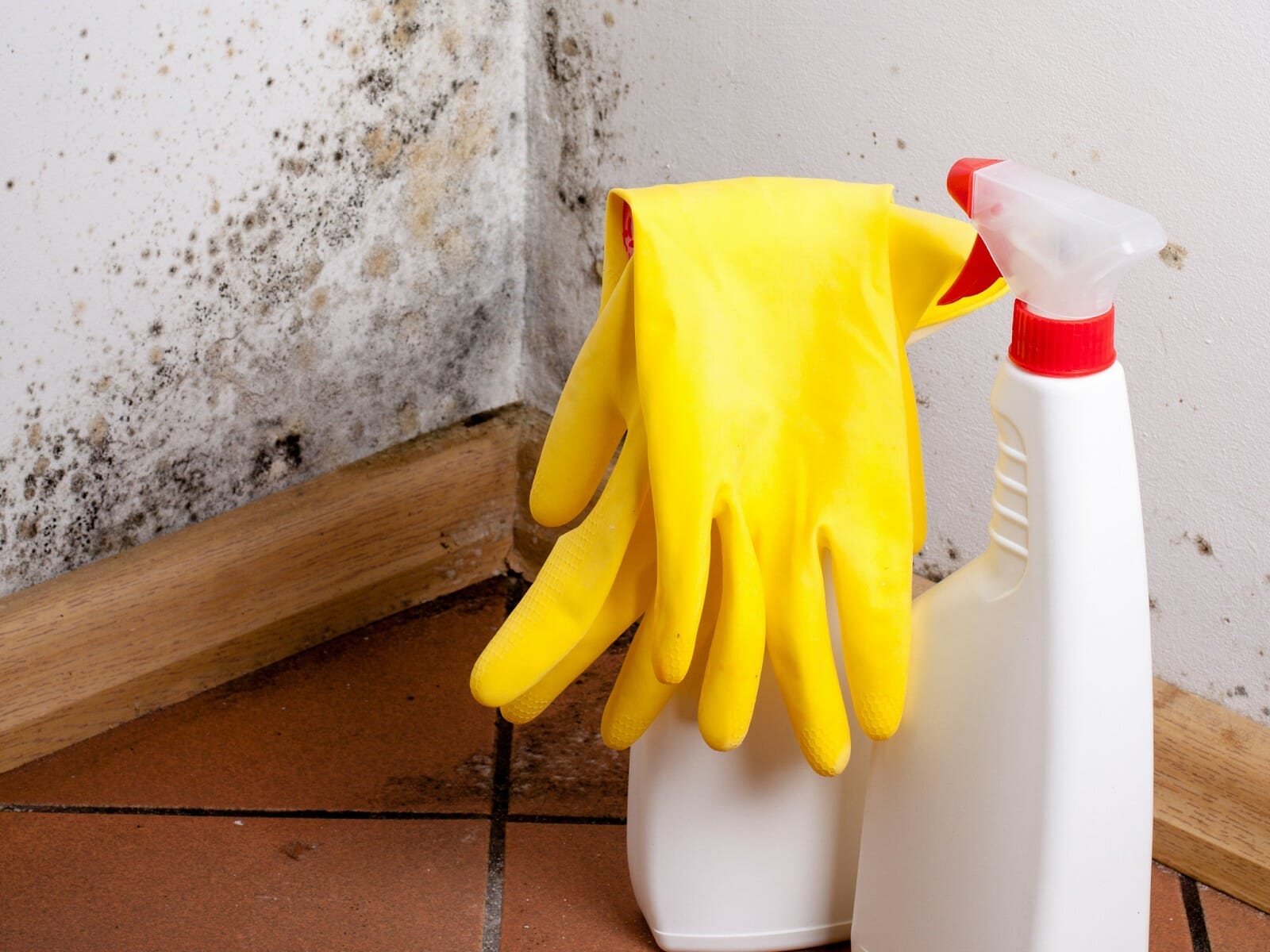
Just like humans, not cleaning up properly can result in the growth of microorganisms that can cause illness and infection in pets.
Mold and mildew growth can cause illness, as can eating food that has been left out for long periods of time. Regularly clean up pet waste and make sure their water is clean. Disinfect your animals’ living spaces as needed.
Make sure that you wash your hands often, both to protect your animals and yourself.
We love our pets, but they can also cause problems for us if they aren’t properly housed and cared for.

Make sure you clean up feces and change litter boxes or cage linings promptly. Vacuuming and cleaning up animal hair can help with allergies and odors.
All your pets should also have their needed vaccinations so they can remain protected from common diseases and issues that arise in their lives. If you’re not sure if they’re up-to-date, call your veterinarian to check their records and schedule their next booster.
It’s also important to only have as many animals in your home as you can take care of. Pets are lovable and it can be difficult to say no to more when you are passionate about animals. However, be mindful of how much space you have, and know your city’s rules on the number of animals you can legally have in your space.
Don’t bring more animals into your home than you can clean up after or feed. Giving the pets you already have the best quality of life is better than having more pets than you can take care of and risking everyone’s health.

If you’re struggling to get your clutter levels under control or need help cleaning up a big mess, Bio-One is here for you. We’ll help you get your home in good condition for you and your pets. To learn more, give us a call anytime at (623) 888-4276 or fill out a service request on our website.